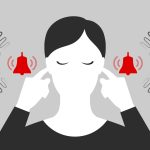
Proactive ways to communicate with people who have hearing loss
Communicating is the vital to all relationships, and when a friend or member of your family experiences hearing loss, it becomes crucial to adapt and find new ways to connect. As audiologists, we understand the challenges that come with hearing impairment and the importance of creating a supportive environment. In this blog, we aim to suggest proactive ways to communicate with people who have hearing loss, enhancing understanding, empathy, and connection.
Understanding Hearing Loss
Before we delve into communication strategies, let's briefly understand hearing loss. It's essential to recognise that hearing impairment is not just about volume; it often involves difficulty understanding certain frequencies or distinguishing speech from background noise.
It’s important to recognise the level of hearing loss so that you can better understand it and make the adjustments that are personal to them. They may have additional needs that also need to be considered and a holistic approach would be easier for everyone.
This understanding will lay the foundation for the proactive communication approaches we'll explore.
Create a Hearing-Friendly Environment
- Minimise Background Noise: Ensure that conversations take place in quiet environments. Background noise can be especially challenging for individuals with hearing loss, making it difficult for them to focus on and understand spoken words.
- Optimise Lighting: Good lighting helps in facial expressions and lip-reading. Make sure the area is well-lit, allowing your loved one to see your face clearly during conversations.
- Face-to-Face Communication: Position yourself in front of your family member when speaking to make lip-reading easier. Maintaining eye contact enhances the connection and provides visual cues.
Embrace Assistive Technology
- Hearing Aids: If your loved one uses hearing aids, encourage consistent usage. Regularly check the devices to ensure they are functioning correctly and assist in changing batteries or troubleshooting issues.
- Assisted Listening Devices: The use of simple devices such as personal mics, tv connectors and table top mics allow shared activities such as watching TV, communicating with loved ones, meeting friends for coffee much easier. This not only ensures comprehension but also allows everyone to enjoy the experience together.
- Smartphone Apps: Explore communication apps designed for individuals with hearing loss. These apps can provide real-time transcription and facilitate text-based communication, enhancing accessibility.
More proactive ways to communicate with people who have hearing loss, enhancing understanding, empathy, and connection...
Develop Clear Communication Habits
- Speak Clearly and Slowly: Enunciate your words and speak at a moderate pace. Avoid shouting, as it can distort speech and make it harder to understand.
- Rephrase Instead of Repeat: If your loved one struggles to grasp a particular phrase or sentence, try rephrasing instead of repeating the same words. This provides a fresh context that might be easier to comprehend.
- Use Visual Aids: Incorporate visual aids, such as written notes, diagrams, or gestures, to support verbal communication. Visual cues can provide additional context and assist in understanding.
Foster Open Communication
- Encourage Feedback: Create an environment where your loved one feels comfortable providing feedback on communication. This ensures a collaborative effort to find the most effective ways to interact.
- Check-In Regularly: Hearing abilities can change over time. Regularly check in with your family member about their hearing experiences and explore any adjustments that may be needed.
- Educate Others: Help friends and extended family members understand the challenges of hearing loss and the communication strategies you're implementing. This promotes a supportive environment for your loved one.
Be Mindful of Emotional Well-being
- Acknowledge Frustrations: Understand that your loved one may experience frustration due to communication difficulties. Acknowledge these feelings, and work together to find solutions and coping mechanisms.
- Encourage Social Inclusion: Individuals with hearing loss may withdraw from social situations due to the challenges they face. Encourage participation in family gatherings and social events, ensuring they feel included and valued. Please read our blog about "How Hearing Well Can Make You a Bigger Part of Your Community".
- Seek Professional Support: If the emotional impact becomes significant, consider seeking the guidance of a mental health professional who specialises in hearing loss-related issues. Hearing Link Services is a charity which will be able to signpost you.
Navigating the challenges of communication with a friend or family member experiencing hearing loss requires a thoughtful and proactive approach. By creating a hearing-friendly environment, embracing assistive technology, developing clear communication habits, fostering open communication, and being mindful of emotional well-being, you can strengthen your connection with your loved one.
Remember, each individual's experience with hearing loss is unique, so it's essential to tailor these strategies to suit their specific needs. By implementing these approaches and staying informed about the latest technologies and developments in hearing care, you can create a supportive and communicative environment that enhances the overall well-being of your family member.





